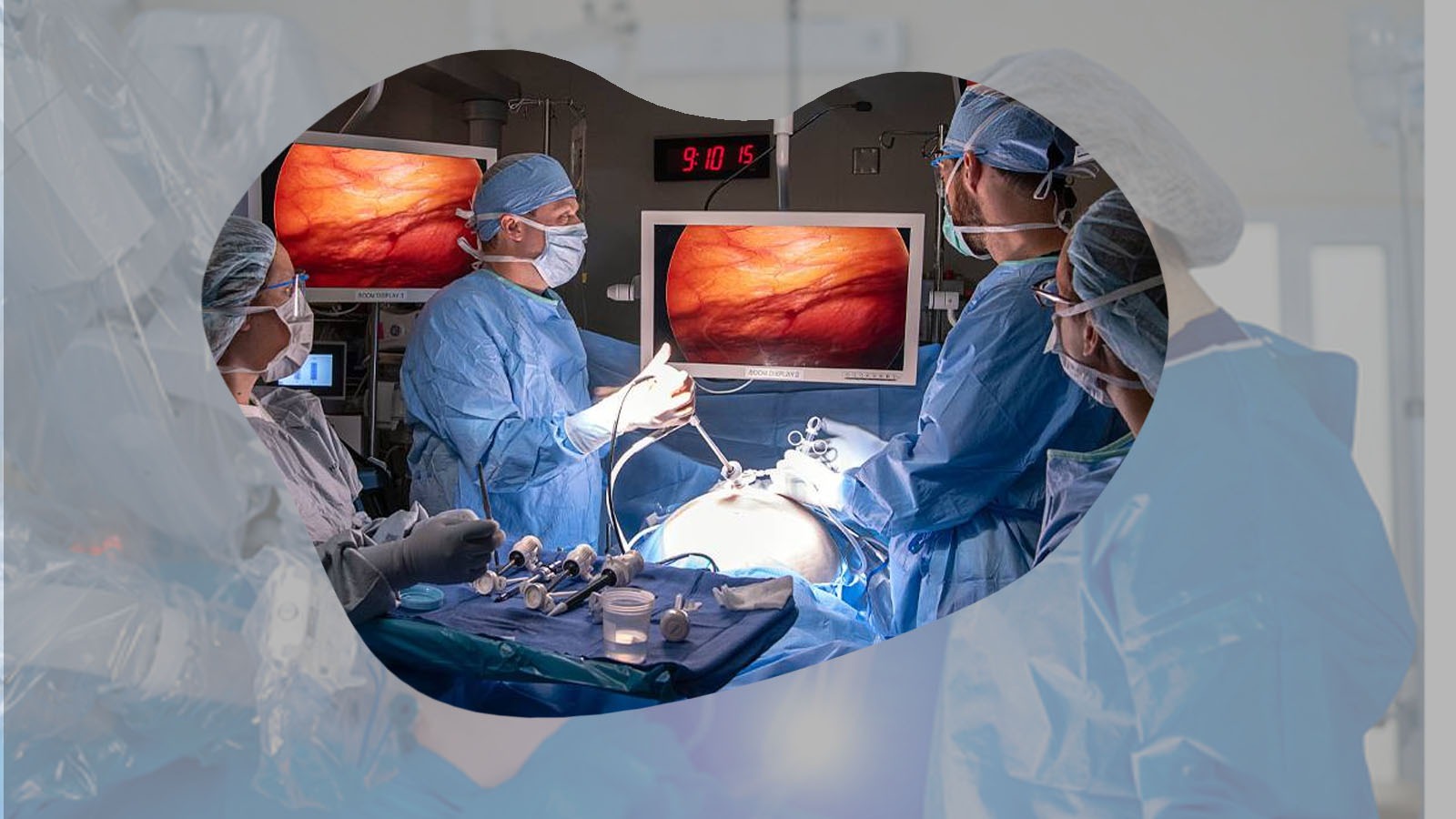How Does Laparoscopic Surgery Help Detect and Treat Abdominal Metastases?
Laparoscopic surgery, also known as minimally invasive surgery, has revolutionized the way abdominal conditions are diagnosed and treated. Among its many applications, one of the most critical is its role in the diagnosis and management of abdominal metastases. For patients with suspected or confirmed cancer, identifying the presence and extent of metastasis (the spread of cancer from its primary site to other organs) is vital for determining the most appropriate treatment strategy.
In this blog, Dr. Pallab Saha, a renowned general and laparoscopic surgeon in Kolkata, discusses the role of laparoscopic surgery and how laparoscopic techniques are shaping the future of oncology care, particularly in managing abdominal metastases.

What Are Abdominal Metastases?
Abdominal metastases refer to cancerous cells that have spread from a primary tumor (such as in the colon, stomach, ovaries, or pancreas) to other structures within the abdominal cavity, such as:
- The liver
- Peritoneum
- Lymph nodes
- Omentum
- Small or large intestines
Detecting and assessing the extent of metastases is crucial for staging the cancer and formulating a tailored treatment plan.

How Laparoscopy Assists in Diagnosing Abdominal Metastases
Traditionally, imaging techniques like CT scans, MRI, and PET scans are used to detect metastases. However, they may sometimes miss small or early-stage lesions, especially on the peritoneal surface. This is where Role of Laparoscopic Surgery plays a key diagnostic role.
Diagnostic Advantages of Laparoscopy:
- Direct Visualization: Laparoscopy allows the surgeon to see inside the abdominal cavity in real time with high-resolution cameras, identifying even small metastatic lesions.
- Biopsy Sampling: Tissue samples can be collected from suspicious lesions and sent for histopathological analysis.
- Staging Accuracy: Helps determine the exact stage of cancer, which is essential for planning surgery, chemotherapy, or palliative care.
- Minimally Invasive: Provides all these benefits with minimal trauma and quicker recovery compared to open exploratory surgery.
The Role of Laparoscopic Surgery in Managing Abdominal Metastases
Once metastases are identified, Role of Laparoscopic Surgery can also help in managing them effectively. Depending on the type and extent of cancer, it may offer several therapeutic interventions:
1. Cytoreductive Surgery
This involves removing visible metastatic tumors from the abdominal cavity. When done laparoscopically, patients experience less blood loss and faster recovery.
2. Debulking Procedures
For cases where complete removal isn’t possible, laparoscopic surgery can reduce tumor burden, making further treatment like chemotherapy more effective.
3. Laparoscopic HIPEC (Hyperthermic Intraperitoneal Chemotherapy)
In select patients, chemotherapy is administered directly into the abdominal cavity using heated solutions, often following laparoscopic tumor removal. This targets microscopic cancer cells and improves survival rates.
4. Palliative Interventions
In advanced cases, laparoscopy can relieve symptoms such as bowel obstruction, ascites (fluid accumulation), or pain—enhancing patient quality of life. Hence the Role of Laparoscopic Surgery is very important.
Advantages of Laparoscopic Surgery in Abdominal Oncology
✅ Reduced Hospital Stay
Most laparoscopic procedures require shorter hospital stays, benefiting both the patient and the healthcare system.
✅ Faster Recovery
Smaller incisions mean less post-operative pain and faster return to daily activities.
✅ Better Cosmetic Outcome
Minimal scarring helps reduce the psychological impact, especially for long-term cancer survivors.
✅ Lower Complication Rates
Laparoscopic surgery typically has fewer post-operative infections and complications compared to open surgery.
Conditions Where Laparoscopic Evaluation is Crucial
- Ovarian cancer with peritoneal spread
- Colorectal cancer with suspected liver/peritoneal metastases
- Gastric cancer staging
- Pancreatic cancer with regional lymph node involvement
- Mesothelioma or peritoneal carcinomatosis
Frequently Asked Questions (FAQs)
Q1: Is laparoscopic surgery effective for diagnosing cancer spread?
Yes. Laparoscopic surgery allows for accurate visualization and biopsy of suspicious areas, which is often more precise than imaging alone.
Q2: How long does it take to recover from a diagnostic laparoscopy?
Most patients recover within 2–5 days, with minimal discomfort and can return to daily activities quickly.
Q3: Can laparoscopic surgery treat cancer metastases?
In selected cases, yes. Laparoscopic surgery is used for tumor debulking, HIPEC, or palliative procedures, depending on the individual’s condition.
Q4: Is laparoscopy better than open surgery?
For many diagnostic and therapeutic purposes, laparoscopy offers similar outcomes with the added benefits of quicker recovery, less pain, and minimal scarring.
Q5: Who should I consult for laparoscopic evaluation in Kolkata?
You can consult Dr. Pallab Saha, an experienced and trusted laparoscopic surgeon in Kolkata, for personalized advice and treatment.
Consult Dr. Pallab Saha – Expert in Laparoscopic and Oncological Surgeries
With years of expertise in minimally invasive surgeries, Dr. Pallab Saha has helped countless patients get accurate diagnoses and effective treatments for complex abdominal conditions.
Whether you’re seeking evaluation for suspected abdominal metastases or need advanced laparoscopic intervention, you’re in safe hands.
📞 Phone: (+91) 9830088321
🌐 Website: https://drpallabsahasurgeonkolkata.in/
📧 Email: drpallabsaha20@gmail.com

Get expert surgical care with compassion and precision.
Schedule your consultation with Dr. Pallab Saha today and take a confident step toward clarity and healing.





